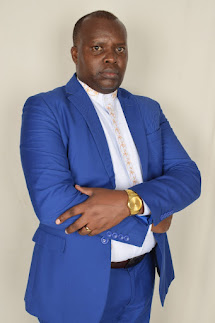THE POVERTY MINDSET IN AFRICA - PART 1
"Africa is not poor—our mindset is. While nations like Dubai and New York transformed themselves through vision and innovation, Africa remains trapped in cycles of dependency. What truly holds us back? It’s time for a mindset shift!
Read more on how we can break free and redefine our future. Click to explore!" Africa, a land of immense potential, is often labeled as poor — not because of a lack of resources, but because of a deeply ingrained mindset. Across the continent, we see two distinct classes: the dynasty and the hustler, the rich and the poor, the elite and the unlearned. But what truly separates them? It is not just wealth or education; it is mindset—the invisible force that determines whether a nation thrives or remains trapped in cycles of poverty. God has richly blessed Africa with vast resources—gold, diamonds, oil, fertile lands, and a young, energetic population. Yet, our mindset remains disorganized and unwilling to work towards transformation. As the Bible says, "The soul of the lazy man desires, and has nothing; but the soul of the diligent shall be made rich." (Proverbs 13:4). Success does not come from mere wishes—it comes from a renewed mind, strategic action, and unwavering diligence.
The Power of a Shifted Mindset: The Dubai and New York Example
In the 1920s, Dubai was nothing more than a vast desert, lacking resources, infrastructure, and global significance. If its leaders had remained trapped in a scarcity mindset, it would still be barren today. Instead, they reimagined their future, turned sand into skyscrapers, and built an economic powerhouse. They didn’t look to the West to rescue them; they looked within, harnessing their vision, strategy, and innovation. Similarly, in the late 19th and early 20th centuries, New York City was a place of poverty, slums, and mass struggles. Yet, instead of being defined by its hardships, it transformed itself through bold vision, industrialization, and an unshakable belief in progress. From a city of immigrants struggling in overcrowded streets, New York became the financial capital of the world, a symbol of dreams and possibilities.The Poor Mindset Holding Africa Back
Now, let’s look at Africa. Despite being one of the richest continents in natural resources, why do we still struggle? Because many leaders and citizens are still trapped in a dependent mindset—waiting for aid instead of building industries, seeking jobs abroad instead of creating opportunities at home, and embracing short-term survival instead of long-term progress. Africa does not lack talent, intelligence, or potential. What it lacks is a mindset shift—a new way of thinking that rejects mediocrity, embraces innovation, and refuses to be held captive by historical limitations. The future of Africa will not be changed by foreign aid or borrowed policies. It will be changed by a generation bold enough to dream, innovate, and take action. A poverty mindset in Africa manifests in different ways, often influenced by cultural, economic, and historical factors.Here are some key kinds of poverty mindsets commonly found across the continent:
1. Survival Mindset
People focus only on meeting daily needs without planning for the future.
Example: Spending all income on food and immediate expenses rather than saving or investing.
2. Dependency Mindset
A belief that external help (government, NGOs, foreign aid) is the only solution to poverty.
Example: Communities waiting for donations instead of creating local solutions.
3. Victim Mentality
People blame external factors (colonialism, government, economy) for their struggles and feel powerless to change their situation.
Example: "There are no jobs because the government is corrupt, so there’s nothing I can do."
4. Entitlement Mindset
Expecting financial support from relatives, the government, or others without putting in effort.
Example: Youth expecting family members abroad to send money instead of looking for opportunities locally.
5. Risk-Averse Mindset
Fear of taking risks in business, investments, or education due to uncertainty or fear of failure.
Example: Choosing a low-paying but "safe" government job over a business with high potential.
6. Anti-Wealth Mindset
Viewing wealth and success with suspicion or associating them with corruption and exploitation.
Example: Successful people being accused of "witchcraft" or ill-gotten wealth instead of being seen as role models.
7. Low-Self Worth Mindset
People believe they are not capable of success due to their background, education, or economic status.
Example: A poor farmer believing they cannot learn modern agricultural techniques.
8. Cultural Burden Mindset
Traditions that discourage financial growth, such as excessive spending on social events or supporting extended family at the expense of personal growth.
Example: A person using all their savings on a lavish wedding instead of starting a business.
9. Consumerism Over Investment Mindset
Preference for spending on luxuries rather than wealth-building assets.
Example: Buying expensive clothes and gadgets while struggling to pay rent.
10. Education Neglect Mindset
Seeing education as unnecessary, especially for girls or people from poor backgrounds.
Example: Parents prioritizing farming or marriage over sending their children to school.
🔔 Follow Pastor Sam Kamau - KBN for more powerful revelations and insights!
Covenant Partnership with Kingdom Ministry
If this message has blessed you and you feel led to partner with Kingdom Borderless Network, you can send your partnership offering to:
💳 PayPal: Kamausn78@gmail.com
📱 Mpesa Till: 9224629
God bless you! Your breakthrough has come!
FOR MORE INFORMATION AND PRAYERS, CONTACT ME ON:
EMAIL: kamausn78@gmail.com
In Christ Service,
Pastor Sam Kamau - KBN
Kingdom Borderless Network








Comments
Post a Comment